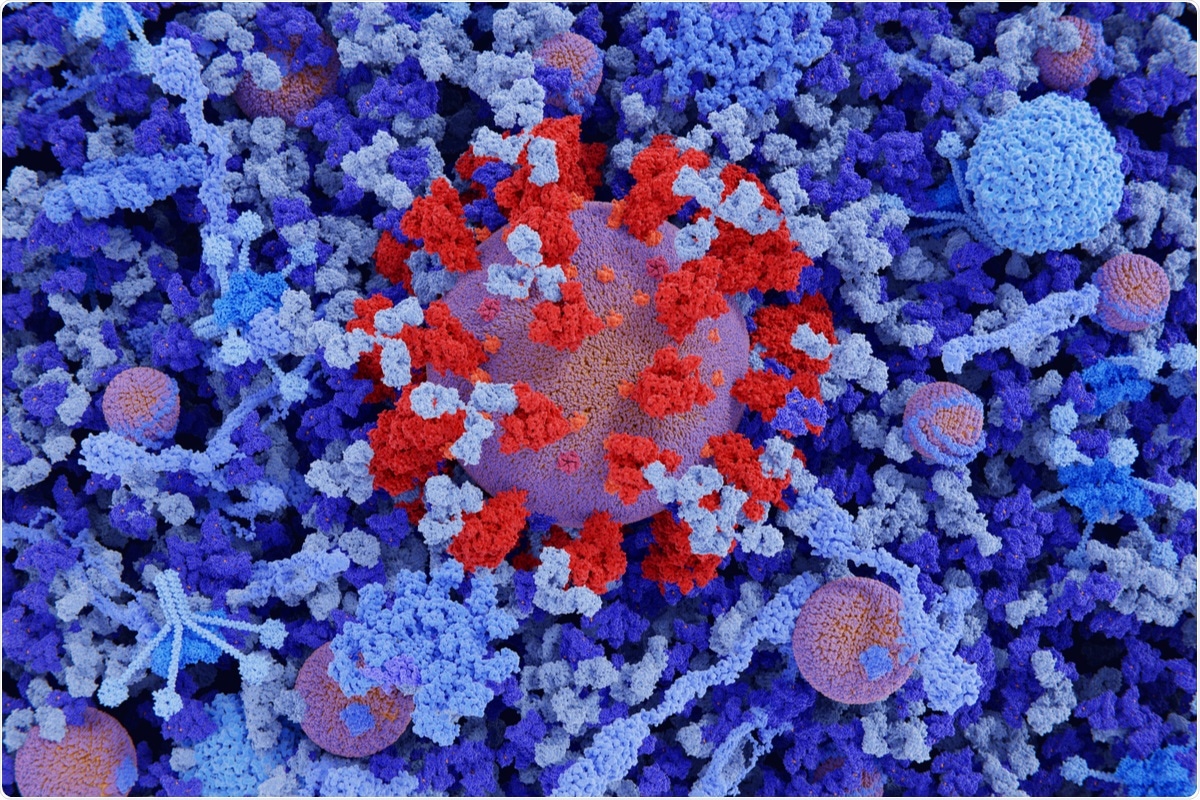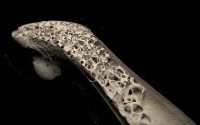Chronological changes in SARS-CoV-2 immune responses after BNT162b2 vaccine
Rapid transmission of a novel coronavirus, namely, severe acute respiratory syndrome coronavirus 2 (SARS-CoV-2), has resulted in the coronavirus disease 2019 (COVID-19) pandemic. This pandemic has massively affected the world’s economy and the healthcare system. In response to the pandemic, scientists and healthcare officials developed various pharmaceutical and non-pharmaceutical measures.
 Study: SARS-CoV-2 specific T cell and humoral immune responses upon vaccination with BNT162b2. Image Credit: Juan Gaertner/ Shutterstock
Study: SARS-CoV-2 specific T cell and humoral immune responses upon vaccination with BNT162b2. Image Credit: Juan Gaertner/ Shutterstock
Background
Among the pharmaceutical measures, the development of novel COVID-19 vaccines has been the most important contribution to managing the pandemic. Several vaccines have received emergency use authorization (EUA) from several global regulatory bodies, such as the Food and Drug Administration (FDA). Subsequently, vaccination programs have commenced in many countries around the world. One of the mRNA-based COVID-19 vaccines that received EUA is BNT162b2, developed by Pfizer-BioNTech and reported 95% efficacy in the clinical trials.
To determine the effectiveness of BNT162b2, many studies have assessed the SARS-CoV-2 specific humoral and cellular responses following vaccination. These studies have reported that a two-dose regimen of BNT162b2 elicited SARS-CoV-2 specific immunoglobulin G (IgG) antibodies, neutralizing antibodies, as well as CD4+ and CD8+ T cells. Scientists have analyzed the existing literature and observed some gaps in literature or scarcity in data. These are listed below:
- Lack of documents regarding the neutralizing antibodies and cell-mediated immune responses against SARS-CoV-2 following COVID-19 vaccination.
- Epidemiological studies on temporal changes in humoral and cellular mediated immune responses and their associated factors, and the use of longitudinal data, is limited.
- Studies on the correlation between humoral and cellular responses are scarce.
- More studies on the humoral and cellular immune responses during and after the COVID-19 vaccination regimen are required to elucidate their effectiveness and longevity of the protection and difference in reports across varying factors.
A longitudinal new study, published on the medRxiv* preprint server, has focused on the chronological changes in humoral and cell-mediated immune responses, during and after the BNT162b2 vaccine administration, among hospital workers of a national medical institution in Japan. Researchers determined the neutralizing antibody, IgG antibody, and T cell responses along with varying factors.
In this study, researchers collected samples from hundred hospital workers, whose ages were between 22 and 73 years, and who received the BNT162b2 vaccine. Samples were collected at five specific intervals, i.e., day 1 (after the first dose of vaccine), day 15, day 29 (seven days after the second dose of vaccine), day 61, and days 82-96 (during periodic health checkup). These samples were analyzed using serological, neutralization, and T cell assays.
About the study
The current study reported that both IgG-S antibody and T cell responses peaked seven days after the second dose (day 29) and gradually decreased until the end of the follow-up period. Researchers found that significant levels of IgG-S antibodies were maintained for around six to ten weeks following the second dose of BNT162b2 vaccination. Interestingly, this study revealed that T cell responses were detected earlier than the neutralizing activity.
A significant increase in the IgG-S titers was found on day 15 and day 29, which decreased from day 61 onwards. However, all the participants remained seropositive throughout the study period. The results of this study are in line with a previous multicenter prospective study that revealed chronological changes in IgG-S titers among health care professionals at different points in time.
Antibodies were detected two weeks after the first dose and peaked between day 14 and 28th day, where the second dose was administered on day 21. These results indicate that an individual who received the BNT162b2 vaccine might produce sufficient neutralizing antibodies against SARS-CoV-2 seven days after the second dose of the BNT162b2 vaccine. The authors recommended a longer follow-up period to determine the neutralizing activity.
Scientists reported that the younger age group possessed significantly higher IgG-S titers throughout the study period. This finding suggests that age is an important determining factor of vaccine-induced humoral immune responses. Additionally, as stated above, early detection of T cell responses indicates vaccines efficacy. The current study did not find any correlation between IgG-S and IFN-g production in T cells. Also, no significant association was observed between background factors, such as age, sex, BMI, and T cell responses. In this study cohort, few participants had higher IFN-g values with low or moderate IgG-S levels and vice versa.
Strengths and limitations
The authors indicated the study's main strength to be its longitudinal design with the frequent estimation of antibodies and T cell responses during and after the COVID-19 vaccination regimen. The current study has several limitations that include a small-scale cohort of hospital workers. A second limitation is that the optimal level of neutralizing activity or cellular immunities to protect against SARS-CoV-2 infection was not determined.
*Important notice
medRxiv publishes preliminary scientific reports that are not peer-reviewed and, therefore, should not be regarded as conclusive, guide clinical practice/health-related behavior, or treated as established information.
- Takeuchi, S. et al. (2021) ARS-CoV-2 specific T cell and humoral immune responses upon vaccination with BNT162b2. medRxiv. doi: https://doi.org/10.1101/2021.11.06.21265632 https://www.medrxiv.org/content/10.1101/2021.11.06.21265632v1
Posted in: Medical Science News | Medical Research News | Disease/Infection News
Tags: Antibodies, Antibody, CD4, Cell, Coronavirus, Coronavirus Disease COVID-19, Efficacy, Food, Health Care, Health Checkup, Healthcare, Hospital, Immunoglobulin, Pandemic, Respiratory, SARS, SARS-CoV-2, Severe Acute Respiratory, Severe Acute Respiratory Syndrome, Syndrome, Vaccine

Written by
Dr. Priyom Bose
Priyom holds a Ph.D. in Plant Biology and Biotechnology from the University of Madras, India. She is an active researcher and an experienced science writer. Priyom has also co-authored several original research articles that have been published in reputed peer-reviewed journals. She is also an avid reader and an amateur photographer.
Source: Read Full Article


